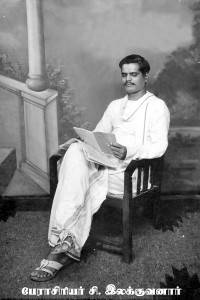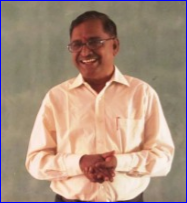Tamil activists in North-East question UN's hidden move on ‘domestic mechanism’
[TamilNet, Friday, 03 July 2015, 20:19 GMT]
“[W]e take note with serious concern the recent announcement by the UN Resident Coordinator in Sri Lanka that the UN has already decided to fund a domestic mechanism,” said 15 Tamil organisations from North-East in a letter forwarded through the Tamil Civil Society Forum (TCSF) to UN High Commissioner for Human Rights on Friday. The organizations have put forward two pertinent questions to the UN High Commissioner for Human Rights: A) How could the UN system decide on supporting a domestic mechanism in abstraction when there has been no proposal or consultation about one? B) Does this announcement not pre-empt the recommendations of the OISL report and any possible follow up action by the UN Human Rights Council and other UN bodies?
“We urge you to take note of the contents of our letter and act swiftly to prevent any undermining of the OISL process,” the letter by the 15 groups, which are active in all the 8 districts of the Tamil homeland, said.
The Resident Coordinator had said that the UN had decided to provide ‘technical support to establish an inclusive and credible domestic mechanism to address human rights violations and accountability and provide redress to victims and conflict affected groups, including families of the missing, in line with international standards’. The announcement by the UN Resident Coordinator further stated that the move would be led by the OHCHR, which has already conducted the OISL investigation.
The civil groups were further complaining in their letter that there has been no process of consultation as Mr Zeid had promised it in his two different addresses, respectively in March and June 2015.
“[W]e take note with serious concern the recent announcement by the UN Resident Coordinator in Sri Lanka that the UN has already decided to fund a domestic mechanism,” said 15 Tamil organisations from North-East in a letter forwarded through the Tamil Civil Society Forum (TCSF) to UN High Commissioner for Human Rights on Friday. The organizations have put forward two pertinent questions to the UN High Commissioner for Human Rights: A) How could the UN system decide on supporting a domestic mechanism in abstraction when there has been no proposal or consultation about one? B) Does this announcement not pre-empt the recommendations of the OISL report and any possible follow up action by the UN Human Rights Council and other UN bodies?
“We urge you to take note of the contents of our letter and act swiftly to prevent any undermining of the OISL process,” the letter by the 15 groups, which are active in all the 8 districts of the Tamil homeland, said.
The Resident Coordinator had said that the UN had decided to provide ‘technical support to establish an inclusive and credible domestic mechanism to address human rights violations and accountability and provide redress to victims and conflict affected groups, including families of the missing, in line with international standards’. The announcement by the UN Resident Coordinator further stated that the move would be led by the OHCHR, which has already conducted the OISL investigation.
The civil groups were further complaining in their letter that there has been no process of consultation as Mr Zeid had promised it in his two different addresses, respectively in March and June 2015.
* * *
It is now clearly evident that the US Establishment has been ‘influencing’ the OHCHR process since its inception.
Adding to the credible questions raised by the Tamil civil society groups, the activists for alternative politics in the island told TamilNet Friday that the OISL process had lost its credibility already in its inception.
The OISL process was neither ‘independent’, nor ‘international’, nor ‘investigation’ as Eezham Tamils have been demanding from the beginning, the activists for alternative politics pointed out.
The appointed experts only serve as ‘advisors’ and are not independent of the OHCHR office, which is subjected to political influence as exposed with the ‘one-time deferral’ move, the activists for alternative politics told TamilNet.
The experts have no ‘investigative’ powers such as the commissioners constituting a full-fledged Commission of Inquiry (CoI).
There are also serious questions on the OISL process meeting the basic standards of an international investigation, the activists further said.
If the OISL findings were complete before the regime change in Colombo, why did the UN High Commissioner fail to submit the OISL findings to a credible third party that could in fact verify that the findings as concluded earlier have not been diluted, they questioned. There is no means to independently verify that the OISL findings to be published in future were in fact ‘strengthened’ after the deferral as it was alluded by Mr Zeid, the activists further said urging Eezham Tamils to conceive their future struggle transcending the Geneva discourse.
* * *
On 17 February 2015, Farhan Haq, the deputy spokesman of UN Secretary-General Ban Ki-moon was questioned by Inter Press Service (IPS),
whether the OISL would now be allowed to interview senior military
officials of the Sri Lankan State following the deferral of the OISL
report.
The response by Farhan Haq to the question posed by the IPS was clear revelation confirming what was in the agenda of the UN Secretary General and the Establishments behind the Geneva discourse on Sri Lanka.
Observing the response, The New York based Inner City Press (ICP) reported it as “ After Zeid Gets Sri Lanka a Deferral, Ban Ki-moon Goes Domestic” on the same day.
Chronology:
The response by Farhan Haq to the question posed by the IPS was clear revelation confirming what was in the agenda of the UN Secretary General and the Establishments behind the Geneva discourse on Sri Lanka.
Observing the response, The New York based Inner City Press (ICP) reported it as “ After Zeid Gets Sri Lanka a Deferral, Ban Ki-moon Goes Domestic” on the same day.
IPS: On the deferral of the Sri Lankan report, what are the details of the Government agreement? Is it going to be new access? Will the OISL [Office of the United Nations High Commissioner for Human Rights Investigation in Sri Lanka] be able to interview senior officials in the army? Are they going to be able to examine mass graves? And secondly, if these new levels of access yield information implicating Shavendra Silva, will the Secretary‑General encourage the Credentials Committee to recommend the General Assembly to reviews General Silva's credentials?
Farhan Haq: First of all, in terms of the next steps, the Secretary‑General is aware that the new administration is planning to set up a domestic accountability mechanism and will be carefully assessing developments. The Secretary‑General, as you're aware, met with the Minister of External Affairs of Sri Lanka last Friday, 13 February, and stressed the importance of Sri Lanka to show firm and clear commitment to accountability, reconciliation and human rights. He also encouraged the Government to engage continuously with the High Commissioner for Human Rights. Advancing accountability, like other parts of the post-war agenda in Sri Lanka, will lay the basis for the country to make further progress on peace, democracy and development. The UN remains committed to support Sri Lanka’s efforts to address the postwar agenda. The Secretary‑General is also aware of reactions from various communities to the decision by the Human Rights Council, and the Secretary‑General will positively engage with the new Government and support its efforts. Regarding your question on Mr. Silva, at this stage, that remains hypothetical. We'll have so see what the results of the next steps will be. Yes? Yes, please, Abdul Hamid?
Chronology:









